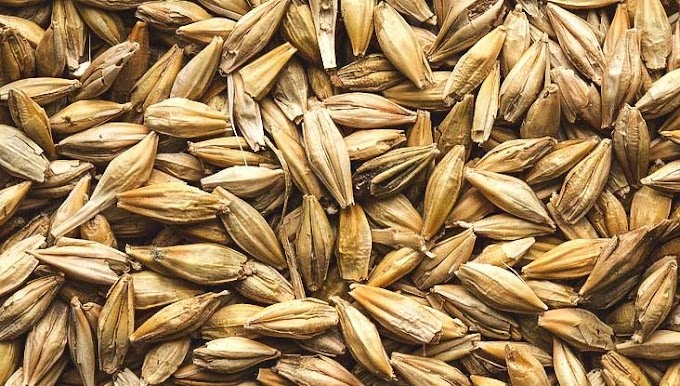What is Cardamom?, Its benefits, medicinal uses, and uses.
What is Cardamom
Cardamom is a spice made from the seeds of several plants belonging to the family Zingiberaceae. It is native to the Indian subcontinent and Indonesia, and is now also grown in other tropical regions, including Guatemala and Tanzania. Cardamom is known for its strong, aromatic flavor and is used in a variety of dishes, including curries, desserts, and teas. It is also used in traditional medicine to treat various ailments, including digestive issues, respiratory problems, and infections. Cardamom is available in both whole and ground form and is often used in combination with other spices, such as cinnamon, cloves, and ginger.
The two most common types of cardamom are green cardamom, which is the most widely used variety and has a sweet, citrusy flavor with a hint of pine, and black cardamom, which has a smoky, earthy flavor and is commonly used in savory dishes. Cardamom is native to India, Nepal, and Bhutan, but is now grown in many other tropical regions around the world. It is used in a variety of sweet and savory dishes, including curries, rice dishes, desserts, and chai tea. It is also used in traditional medicine for its potential health benefits, which include improving digestion and reducing inflammation.
Benefits of Cardamom
Cardamom has been used for centuries in traditional medicine for its potential health benefits. Here are some of the most commonly claimed benefits of cardamom:
Aids Digestion: Cardamom is believed to stimulate the production of digestive enzymes, which can help to improve digestion and reduce digestive issues such as bloating, gas, and constipation.
May Help Reduce Inflammation: Some studies have suggested that cardamom may have anti-inflammatory properties, which could help to reduce inflammation in the body and potentially reduce the risk of chronic diseases such as heart disease and cancer.
May Help Control Blood Sugar: Several studies have shown that cardamom may help to lower blood sugar levels in people with diabetes by improving insulin sensitivity and reducing insulin resistance.
May Help Improve Oral Health: Cardamom contains compounds that may have antimicrobial properties, which could help to reduce the growth of bacteria in the mouth and potentially improve oral health.
May Help Protect Against Chronic Diseases: Cardamom is rich in antioxidants, which can help to protect against oxidative damage and potentially reduce the risk of chronic diseases such as heart disease, cancer, and diabetes.
It's worth noting that while there is some evidence to support these claims, more research is needed to fully understand the potential health benefits of cardamom. As with any dietary supplement, it's always best to talk to your healthcare provider before adding cardamom to your diet, especially if you have a pre-existing medical condition or are taking medication.
Uses of Cardamom
Cardamom has a wide range of culinary and medicinal uses. Here are some of the most common uses of cardamom:
Culinary Uses: Cardamom is commonly used as a spice in a variety of dishes, including curries, rice dishes, stews, and baked goods. It is also a key ingredient in chai tea and other spice blends such as garam masala.
Digestive Aid: In traditional medicine, cardamom has been used as a digestive aid, and is often added to teas or used in cooking to help improve digestion and reduce bloating, gas, and other digestive issues.
Respiratory Support: Cardamom has also been used traditionally to support respiratory health, and is sometimes added to teas or used in steam inhalations to help relieve coughs, congestion, and other respiratory symptoms.
Oral Health: Cardamom contains compounds that may help to fight oral bacteria and improve oral health. It is sometimes added to toothpaste or used as a mouthwash to help freshen breath and reduce the risk of gum disease.
Aromatherapy: The essential oil of cardamom is sometimes used in aromatherapy to help promote relaxation, reduce stress, and improve mood.
Traditional Medicine: In Ayurvedic and traditional Chinese medicine, cardamom has been used to treat a variety of conditions, including digestive issues, respiratory problems, and anxiety.
Overall, cardamom is a versatile and flavorful spice with a long history of use in traditional medicine and culinary traditions around the world.
In which diseases cardamom is beneficial
Cardamom has been studied for its potential health benefits in a variety of conditions. While more research is needed to fully understand its therapeutic effects, here are some conditions for which cardamom has shown promise:
Digestive Issues: Cardamom has traditionally been used to improve digestion and alleviate digestive issues such as bloating, gas, and constipation.
Diabetes: Some studies have suggested that cardamom may help to lower blood sugar levels and improve insulin sensitivity in people with diabetes.
Respiratory Issues: Cardamom has been traditionally used to support respiratory health and may help to relieve coughs, congestion, and other respiratory symptoms.
Oral Health: Cardamom has been shown to have antimicrobial properties that can help to fight oral bacteria and improve oral health.
Inflammation: Cardamom contains compounds that have anti-inflammatory effects, which may help to reduce inflammation and potentially lower the risk of chronic diseases such as heart disease and cancer.
Stress and Anxiety: Some research has suggested that cardamom may have a calming effect and help to reduce stress and anxiety.
It's worth noting that while cardamom shows promise in these areas, more research is needed to fully understand its therapeutic effects and to determine the appropriate dosages and methods of administration. As with any dietary supplement, it's always best to talk to your healthcare provider before adding cardamom to your diet, especially if you have a pre-existing medical condition or are taking medication.
Medicinal benefits of cardamom
Cardamom is a spice that is commonly used in cooking in many parts of the world, including South Asia, the Middle East, and Scandinavia. In addition to its culinary uses, cardamom has also been used for centuries in traditional medicine to treat a variety of health conditions. Some of the potential medicinal benefits of cardamom are:
Digestive health: Cardamom has been traditionally used as a digestive aid, helping to relieve symptoms of indigestion, flatulence, and stomach cramps. It may also help to improve appetite and promote healthy digestion.
Anti-inflammatory effects: Cardamom contains compounds with anti-inflammatory properties, which may help to reduce inflammation in the body and alleviate pain and swelling associated with conditions like arthritis.
Antioxidant properties: Cardamom is rich in antioxidants, which help to protect the body from damage caused by free radicals. This may help to reduce the risk of chronic diseases like heart disease and cancer.
Oral health: Cardamom has antimicrobial properties that may help to promote oral health. It has been used traditionally to freshen breath and prevent cavities and gum disease.
Respiratory health: Cardamom contains compounds that may help to relieve respiratory symptoms like coughing and wheezing. It may also help to clear congestion and promote healthy breathing.
Overall, while more research is needed to fully understand the medicinal benefits of cardamom, it is a flavorful spice that can be a healthy addition to your diet.








